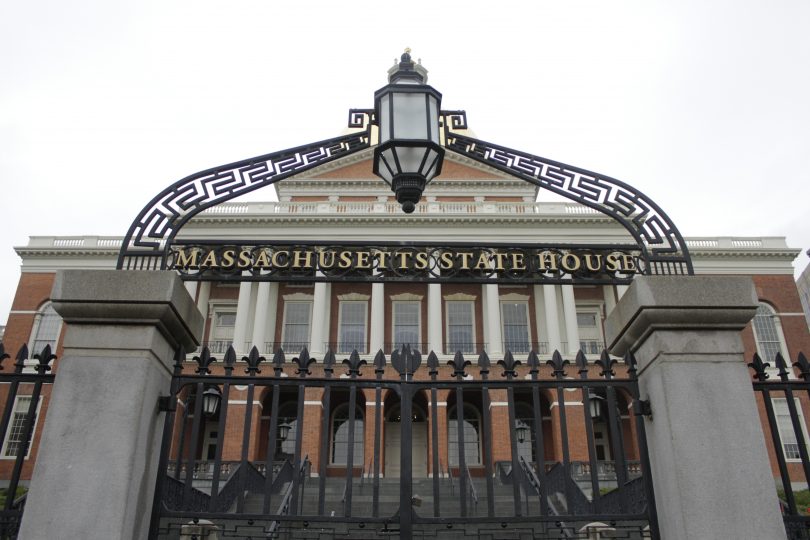By Allison Pirog
Boston University Statehouse Program
Massachusetts domestic violence service providers had to pivot to virtual counseling, close their emergency shelters and take measures to protect their clients when the pandemic began. As COVID-19 cases continue to drop, they have opted to maintain some pandemic-induced practices after learning that increased flexibility can benefit clients and staff.
However, as government emergency funding begins to taper off, some worry they will need to cut services for survivors.
Marcia Szymanski, executive director of New Hope which provides counseling and other services for survivors of domestic violence in south-central and southeastern Massachusetts, said she plans to stick with a hybrid model where clients can visit virtually or in person.
The non-profit has had a better show rate for virtual counseling because the appointments are more convenient for many clients, Szymanski said.
“It’s not always about just being in our office and waiting for people to come to us,” Szymanski said. “How do we make ourselves available in a multitude of ways?”
The agency purchased technology for clients who needed it to access virtual services, she said.
New Hope, which has offices in Milford, Southbridge, Worcester, Attleboro, and Taunton, has used virtual counseling to balance caseloads, having clients meet virtually with another office’s counselor if the closest office is fully booked, she said.
The virtual model posed challenges for New Hope’s supervised visitation program, where non-custodial parents with a history of domestic or sexual violence have staff-supervised visits with their children, Szymanski said. Children need their custodial parents’ help setting up technology, so non-custodial parents sometimes worry the custodial parent is listening in, she said.
New Hope returned to in-person supervised visitation last summer, Szymanski said.
Szymanski said the agency is focused on getting services to those who were unable to get access to them in the past, especially people of color, Indigenous communities, and LGBTQ people. New Hope recently added Spanish and Portuguese-speaking staff at some of its locations, she said.
The organization received extra funding during the pandemic, but Szymanski said uncertainty over future funding makes long-term planning difficult. New Hope would need to reduce staffing if they lost funding, which Szymanski said would mean fewer survivors receiving services.
Sen. Jamie Eldridge, D-Acton, said federal American Rescue Plan Act funds are a temporary state revenue, so cutting taxes now will cause domestic service cuts in the future.
Gov. Charlie Baker filed a $700 million tax relief plan alongside his budget proposal in January. Baker has also called on lawmakers to pass his dangerousness bill, first filed in 2018, which would require a hearing to determine if defendants accused of domestic violence and some other crimes should be held without bail.
Eldridge said the state should focus on providing services to domestic violence survivors without taking an overly punitive approach to justice.
“The concern there is that in time when we’re looking to reduce mass incarceration and focus on say treatment over penalties, why did Governor Baker file this bill that that is more focused on penalties?” Eldridge said.
Towns and cities should increase funding for services and train police officers on responding to domestic violence calls, he added.
Eldridge said he supports increasing the number of victim witness advocates in the courts, providing more shelters for women and children, and closing the gap in services for rural and suburban areas.
Sue Chandler, executive director of Quincy-based service provider DOVE, said her organization has secured funding to keep six furnished apartments where survivors lived once the pandemic closed their emergency shelter. This will double DOVE’s capacity when the emergency shelter reopens in May, she said.
Clients living in these apartments have more independence and space but still have the support of DOVE’s staff, she said.
Chandler said DOVE moved all its meetings virtual last year which has reduced travel time and made meetings more efficient for clients and staff. The service provider will hold half of its staff meetings virtually and allow clients to choose the option most convenient for them.
DOVE will also offer a virtual version of its biannual domestic violence awareness training for community members, allowing a broader audience to attend, Chandler said.
Chandler said she has observed more severe mental health issues among survivors as they deal with isolation. She said demand for services is still elevated from pre-pandemic levels.
The organization has faced challenges filing critical staff positions because many job seekers want to work remotely which is not feasible for this work with survivors, Chandler said. DOVE has raised salaries by 6 to 8% and is being “as creative as possible” to hire staff without sacrificing client needs, she said.
“We’re competing with other amazing, mission-based organizations who are also seeking talented passionate people to help others,” Chandler said. “Just doing our best to be a flexible, responsive, supportive employer.”
DOVE received Payroll Protection Program funding to keep paying all its staff in the early days of the pandemic, as well as flex funds to help clients pay for first and last months’ rent, vehicle repairs, groceries, and security systems, Chandler said.
Chandler said while the state is doing well financially, it cannot maintain all programs federal emergency funds covered earlier in the pandemic. DOVE is advocating for higher budget allocations to domestic violence service providers and affordable housing, she said.
“There has been a lot of governmental support through federal emergency funds that have definitely helped many survivors,” Chandler said. “That money is going to come to an end, and people are definitely going to be facing eviction.”
This article originally appeared in The Sun Chronicle.





